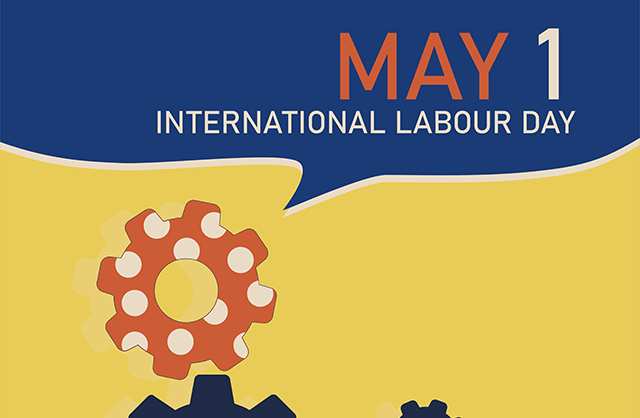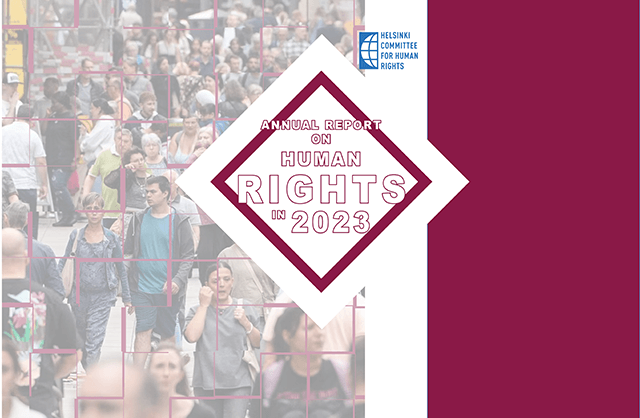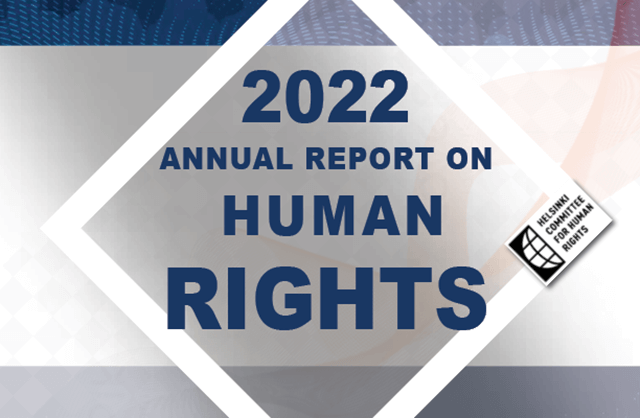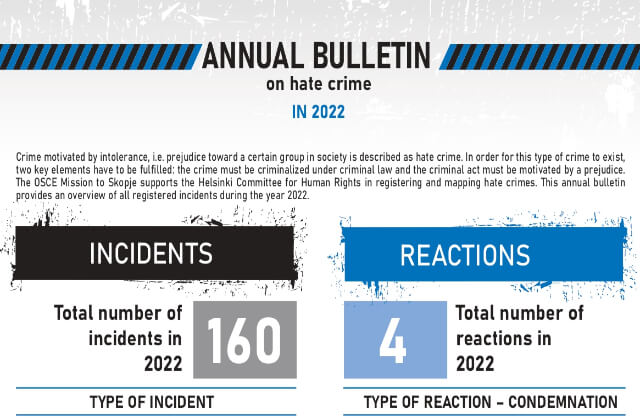The situation with workers’ rights 1 November 2019 – 30 April 2020 semi-annual infographic
April 30, 2020

Workers’ rights are human rights
International Labour Day, May Day, symbolizes the struggle to preserve and promote workers’ rights and is celebrated in honour of the victims and injured of the bloody strike of May 1 to 4, 1886 in Chicago. The strike was one of the first cries in a series of fights for improvement of workers’ position in countries around the world. At the time, the workers demanded the introduction of an eight-hour working day, and after this goal was partially achieved for certain share of workers, the celebration of Labour Day did not stop. The struggle for the protection and promotion of workers’ rights continues, and May Day remains and continues to be an annual expression of these demands so that the fate, rights and obligations of the workers can never again be determined without the workers.
Today, 134 years later, for many workers, a 40-hour workweek and a free weekend are still unattainable desires. This also applies to many workers in North Macedonia, who on a daily basis face a series of violations of their labour rights, which are considered human rights under our Constitution.
The Helsinki Committee remains an ally of the workers
The Helsinki Committee for Human Rights will continue to monitor the situation of workers’ rights in the country and is ready at any time to engage constructively in all processes with stakeholders to ensure respect for labour.
Over the last six months, the Helsinki Committee for Human Rights has registered 214 applications covering more than 3,432 workers. More than 461 workers lost their jobs, and approximately 696 workers had their salaries reduced or not paid at all. In these extremely unpredictable and difficult times, being without a salary for most workers means risking their bare existence and that is why we need solidarity and togetherness.
Workers are people of flesh and blood, with their own inalienable human rights, feelings, life stories and dignity. It is high time we all stand in defence of workers’ rights and ensure that demands older than a century – a decent life for all, regulation of working hours and paid overtime, social and health security, are finally met.
Trade unions need to overcome division
The consequences of the current situation will require an active dialogue between the social partners to find appropriate measures and steps to overcome the crisis and move forward towards sustainable economic development. That is why the divided trade union organizations should consolidate its differences as soon as possible and provide an adequate representation of about 800,000 male and female workers in the country who live mostly on wage labour. Situations, such as the one from last year’s May Day, when the general unions held three separate protest marches, only worsen the workers’ negotiating position and point to the formality of the union, at the expense of the essential needs and problems. That is why it is absolutely necessary to redesign the fight for worker’s rights and create conditions for effective impact in the securing of social justice.
Institutions must protect workers from the effects of the state of emergency
Workers were also the first to be hit when the state of emergency was declared across the country to deal with the effects of the coronavirus. That is why on this day, we reaffirm the united requests to the Government of several trade unions and civil society organizations, which refer to the protection of the workers and the poor and which have not obtained an appropriate response from the institutions to date.
- Moratorium on all terminations of employment contracts by employers (business reasons) and on all pay cuts during the state of emergency;
- The possibility for persons whose employment has been terminated due to their own statement, by agreement or due to alleged violation of discipline to exercise the right to monetary compensation for unemployed persons. The reason for this is because many workers have been deceived by employers in the past and their employment has been terminated in this manner.
- To restrict financial support to companies that have dismissed workers since the beginning of the crisis, i.e. since the beginning of March. Many companies that have dismissed workers in the recent weeks, under the current measures can receive state aid despite the layoffs.
- To provide protection for independent workers (freelancers, independent contractors and similar types of workers), who are the most vulnerable category and have almost no social and health insurance. These workers, following the example with the independent artists and athletes, should receive financial support for the months of April and May 2020, in the monthly amount of at least 14,500.00 denars.
- Prohibit the calculation of interest rates by banks, savings houses, financial companies and enforcement agents for the duration of the crisis, i.e., prevent the respective entities from profiting in this crisis on the burden of the debtors.
- State institutions should initiate proceedings to establish liability in the event of criminal misconduct by employers in connection with contractual and other dismissals of workers in the preceding period.
The semi-annual report on the situation of workers’ rights and data related to all 214 cases are available for download on the infographic below. The Infographic covers the period from 1 November 2019 to 30 April 2020 and was produced within the project ‘Improved productivity through better labour legislation in North Macedonia’, funded by the Good Governance Fund of the United Kingdom. Opinions and views stated in the contents do not necessarily reflect the opinions and views of the Government of the United Kingdom.


